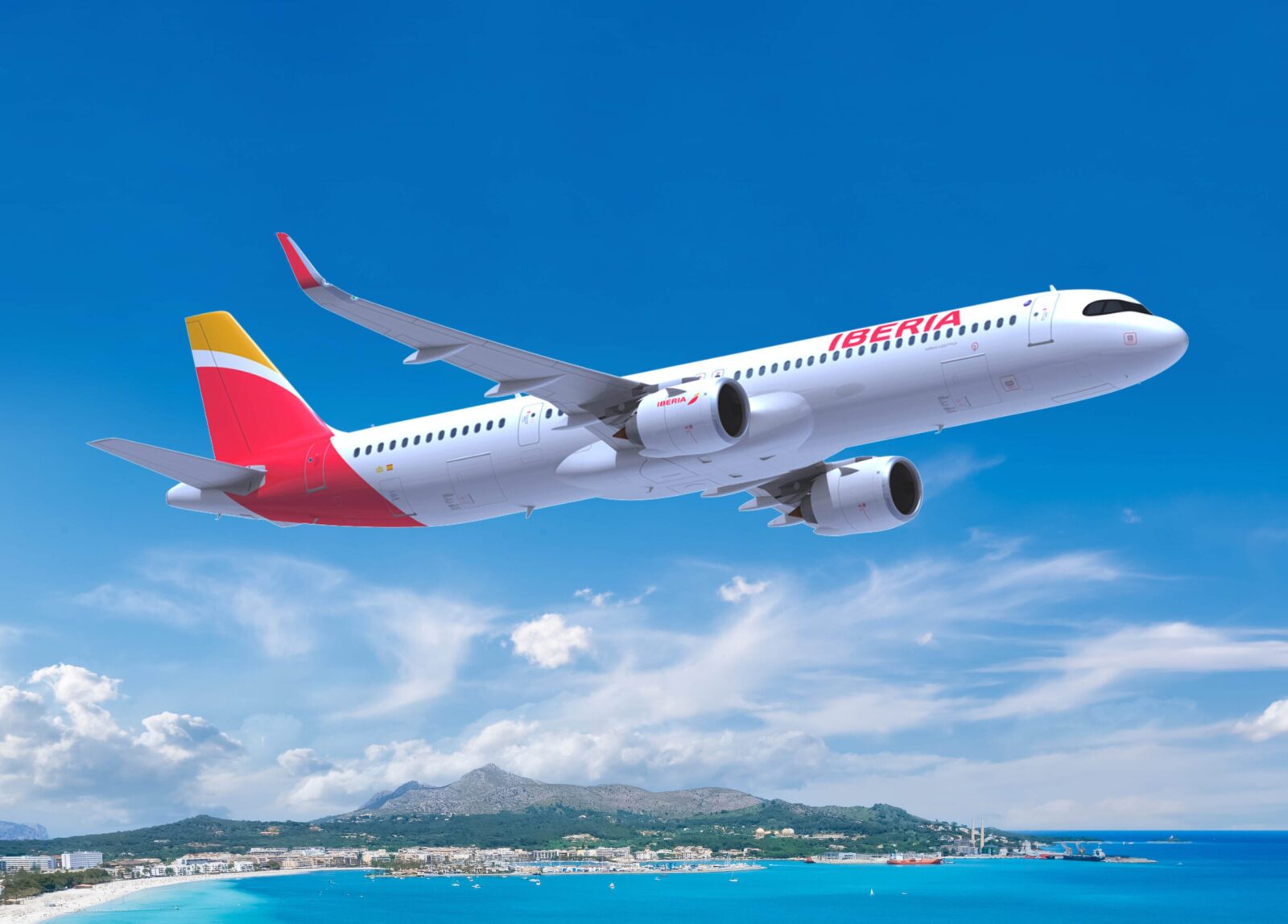
Spanish flag carrier Iberia has released new details about its soon-to-be-delivered Airbus A321XLR single-aisle aircraft, which will operate non-stop transatlantic flights from Madrid to Boston and Washington DC from Autumn 2024.
Iberia will become the launch customer of the A321XLR after parent company IAG reallocated the first deliveries from Aer Lingus due to a pay dispute with the Dublin-based airline’s pilots.
The reallocation was officially announced earlier this month, which was the latest date that IAG had to decide what paint scheme to apply to the first of the airline group’s 14 A321XLRs, which will be split eight to Iberia and the remaining six to Aer Lingus (once the contract talks are resolved).
Although the livery of the aircraft is going to be different than originally planned, the interior is expected to remain the same between both carriers, and Iberia has now released further information about how the cabins of the A321XLRs will be configured.
The aircraft will be fitted with 182 seats in a two-class configuration of Business Class and Economy – around 22% fewer seats than the short-haul configured A321neo aircraft operated by Iberia Express.
Designed primarily for long-haul flights traditionally operated by widebody aircraft up to 11 hours in duration, the Iberia A321XLR will feature 14 Business Class seats in a 1-1 configuration with all-aisle access, which transform into fully flat beds.
Business Class seats will also get 14-inch 5K TV screens, while Economy seats (based on the Recaro CL3810 seat) will get two pockets to store personal items, Bluetooth headphone connectivity with the inflight entertainment system, USB type A and C charging ports and a device holder.
Iberia is also introducing the Airbus ‘Airspace’ cabin on its A321XLRs, which features six different mood lighting settings, larger overhead lockers and a new welcome light feature in the galley at Doors 1.
Addressing one of the most common complaints of using single-aisle aircraft on long-haul routes – bathroom lines – Iberia says its A321XLRs will have four lavatories and if there is ever a long queue, passengers will be able to connect to the onboard Wi-Fi system to pass the time.
Some passengers will take the view that using a single-aisle aircraft on routes traditionally served by widebody Airbus A330 aircraft is a discenible downgrade but Iberia insists the A321XLR will provide “premium service at the same level as that enjoyed in wide-body models”.
Tellingly, Iberia also admits that the new single-aisle aircraft will use around 30% less fuel than widebody planes on the same routes and will also allow the airline to better utilize its widebody aircraft in markets beyond the A321XLRs range.
The first A321XLR is expected to join the Iberia fleet during the summer and will initially be used to operate medium-haul routes in order to train cabin crew and iron out any kinks with the aircraft and onboard service.
If all goes well, the plane will then be ready to operate transatlantic flights by the Autumn. In a press release from Iberua on Sunday, the airline suggested it would now take delivery of all eight A321XLRs in its allocation before Aer Lingus takes delivery of a single plane.
Related
Mateusz Maszczynski honed his skills as an international flight attendant at the most prominent airline in the Middle East and has been flying ever since... most recently for a well known European airline. Matt is passionate about the aviation industry and has become an expert in passenger experience and human-centric stories. Always keeping an ear close to the ground, Matt's industry insights, analysis and news coverage is frequently relied upon by some of the biggest names in journalism.







